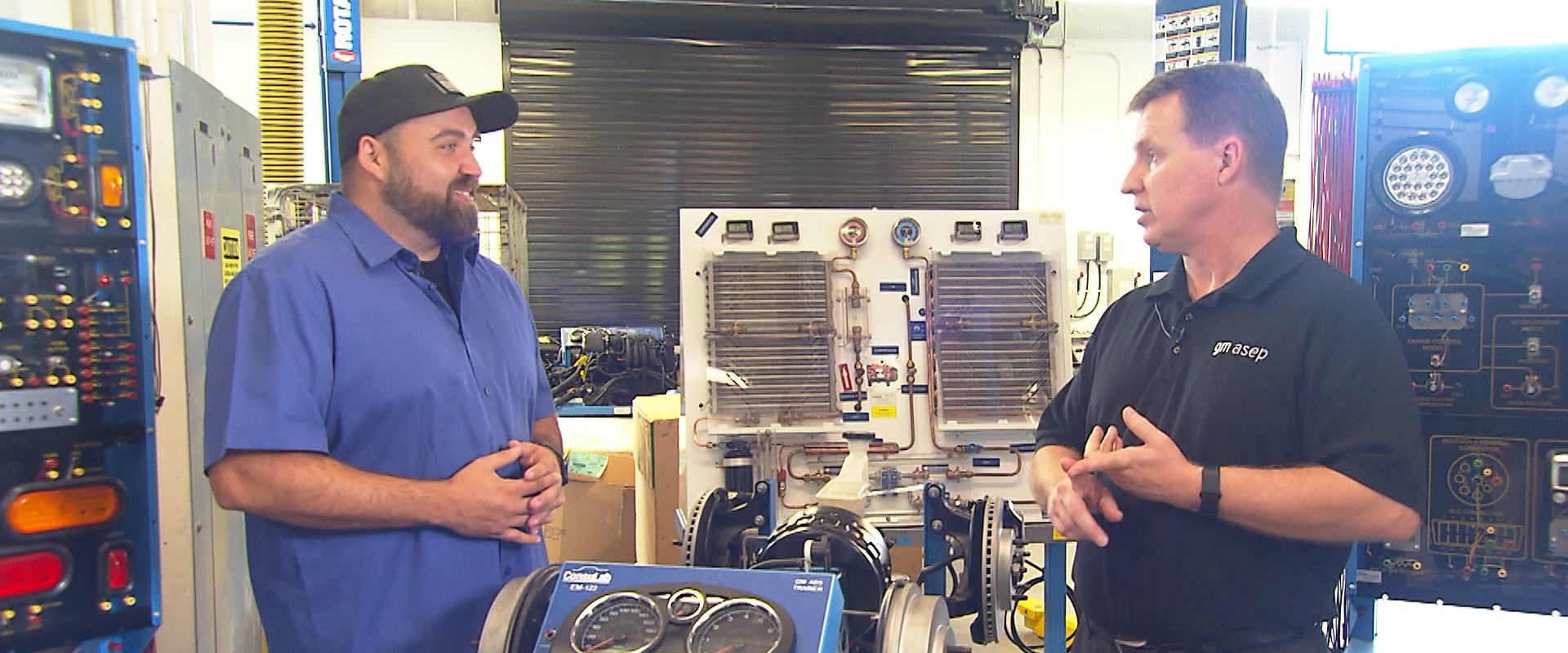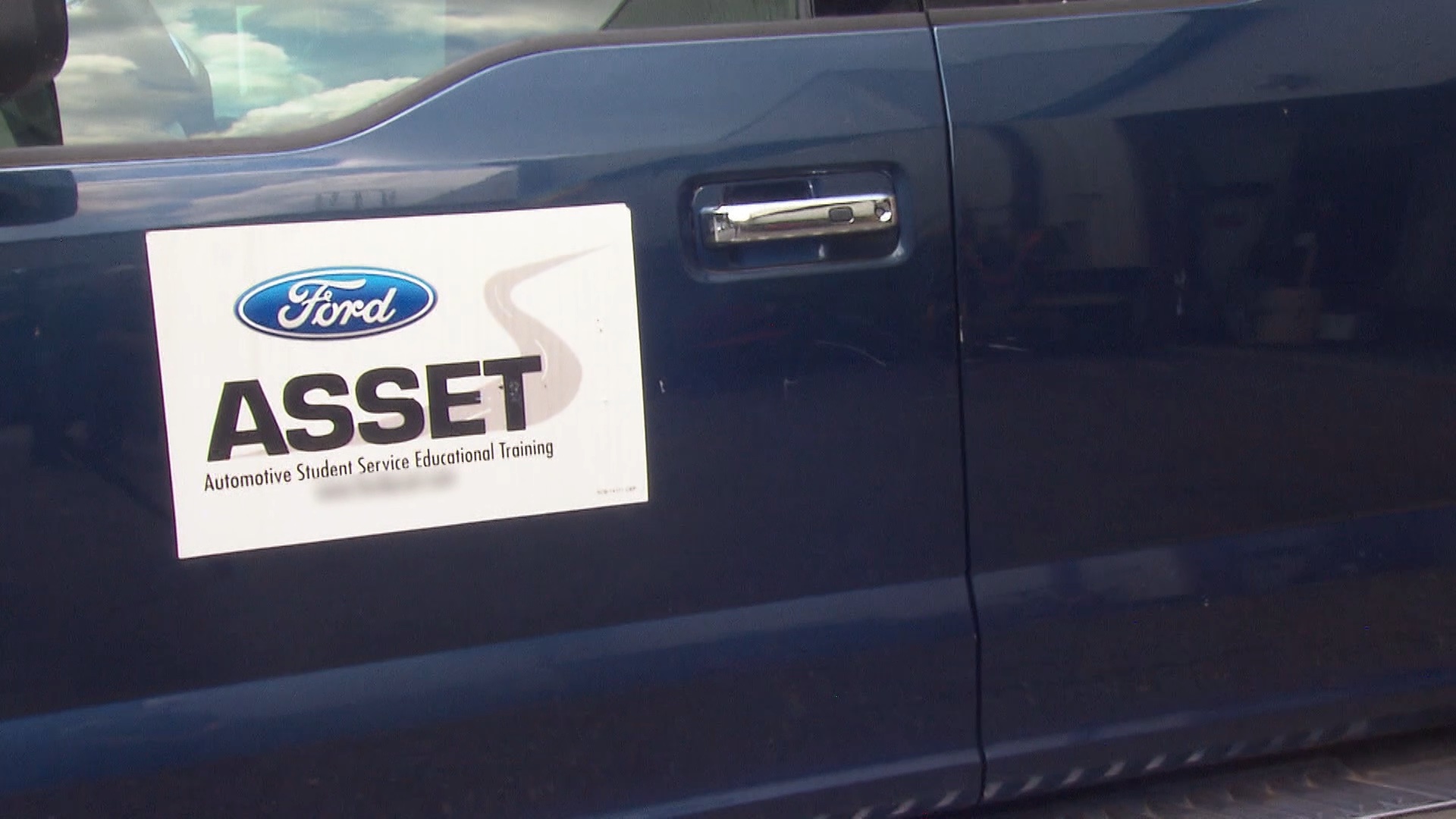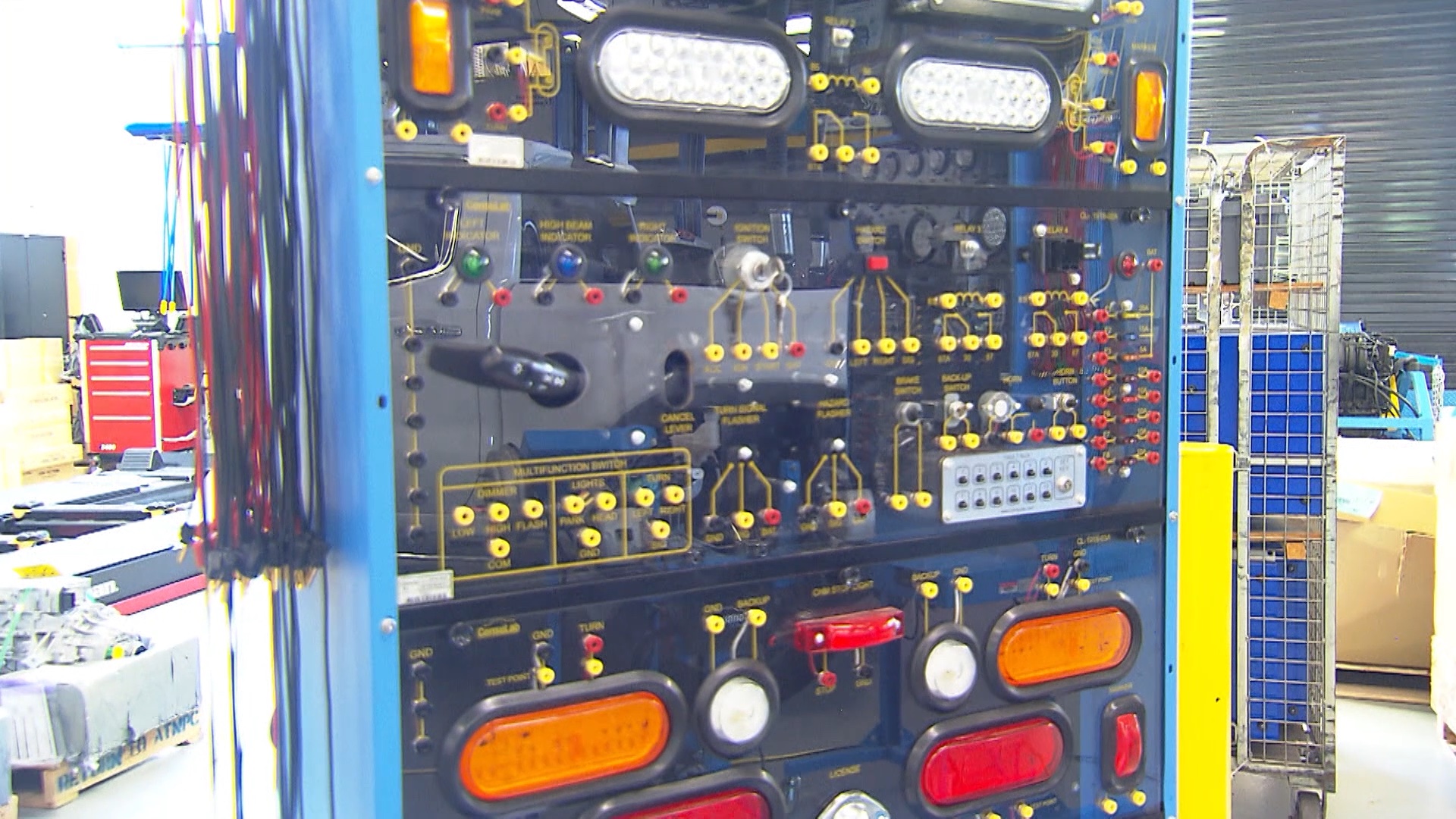CCBC Auto Tech Training
You may have heard that America is facing a serious shortage of trained auto techs. Fixing that starts with proper schooling, including vocational programs found at local community colleges. So, we sent Dan Maffett to check out the coursework On MotorWeek’s “Your Drive!”
DAN MAFFETT: With the amount of cars on the road today, technicians are as in demand as ever; and with the advancement of automotive technology, trained techs are as important as ever. We’re here at the Community College of Baltimore County with Harold. Thanks for having us. Tell us a little bit about what you do here.
HAROLD BABB: Thanks for coming in, we’re grateful to have you here. We have one of the largest automotive training programs, certainly in Maryland. We actually run four separate programs: We have a General Motors ASEP program, a Ford ASSET program and a Nissan NTTA program, and we also have a global program that has some ties with Stellantis and Dodge and Jeep.
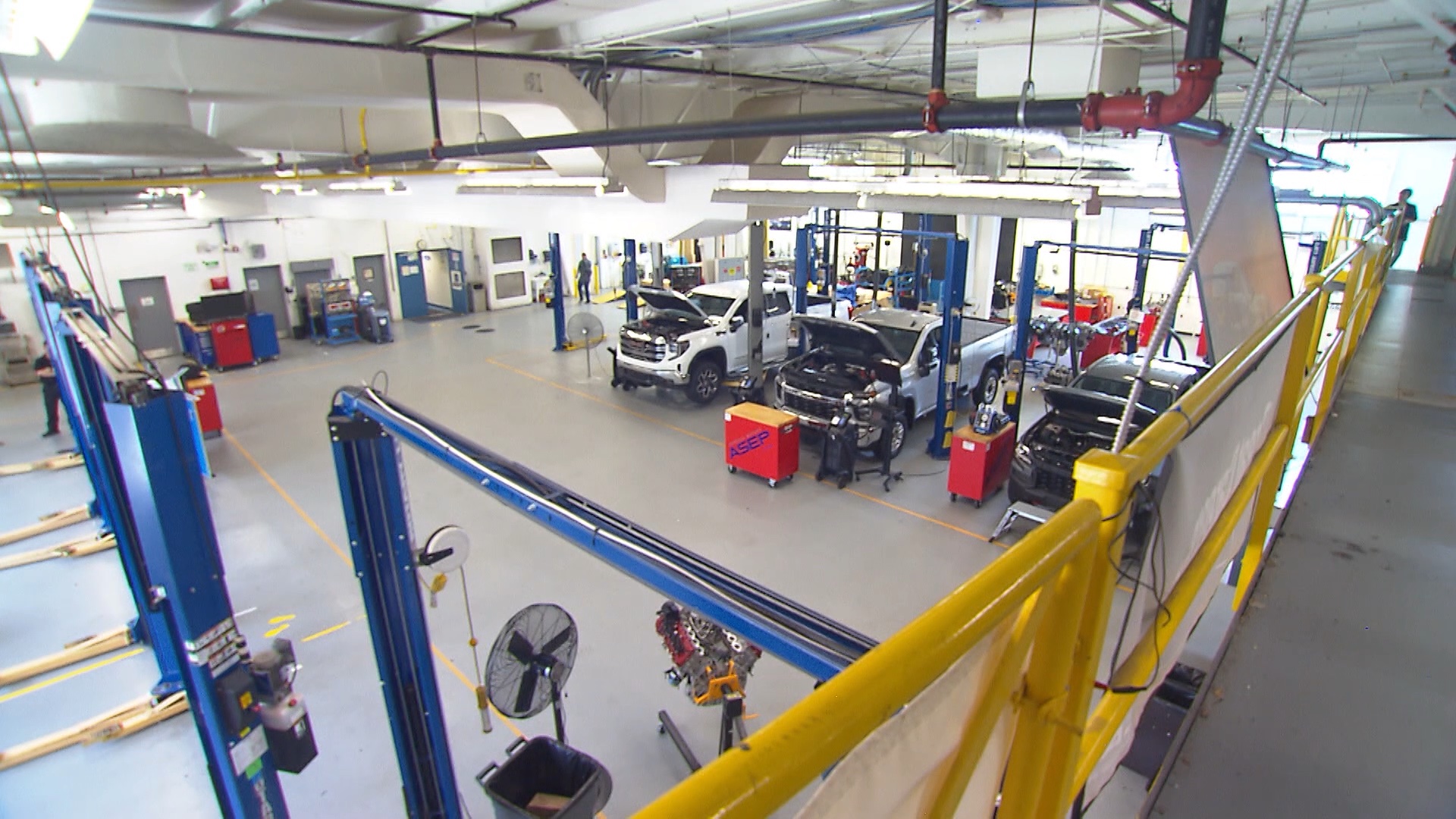
DAN MAFFETT: That’s great. You just cover the whole market at that point.
HAROLD BABB: Cover everything we can. We have two different programs to run through. One is the degree-seeking program, where they graduate with all the training, plus an AAS degree; and then we have a certificate program for the students that are, you know, not worried about the academics and just going right after the automotive programs.
DAN MAFFETT: Oh, that’s great. So, you can give them career pathways no matter which way they want to go.
HAROLD BABB: Exactly.
DAN MAFFETT: And what kind of tools do you use here as teaching elements? I see you have this platform here in front of us that looks like a brake setup.
HAROLD BABB: Yeah, we’re very fortunate. The college supports really us with a lot of funding, and then we get a lot of support from our manufacturers as well. This is actually made by Consulab. We purchased it with Perkins funding, and this is an ABS trainer; and it’s basically a full anti-lock brake system from a Cobalt. It’s got everything from the anti-lock brake module, EBCM computers; right down to– they even installed pressure gauges so we can explain how things work with the students so they understand the concepts.
DAN MAFFETT: So, they can diag this, and once they learn this they can diag the same system on a different car…
HAROLD BABB: Exactly…
DAN MAFFETT:… in the real world.
HAROLD BABB: Exactly. You know, we have like the lighting board to your right and that goes through— it’s a body control module lighting board, so it’s just like what we have with all the modern cars. On my left we have the Multiplex training board. Goes through communications and even air conditioning systems where we have the full air conditioning– the evaporator, condenser– right out of the car so they can see it and understand the concepts.
DAN MAFFETT: That’s a great teaching tool: To have a whole complete system, all laid out, really easy to read and diag.
HAROLD BABB: Makes it easy because when you have a lot of what’s outside the car and inside the car, so it’s got it all on one board. And then ultimately, they end up on the cars anyway though.
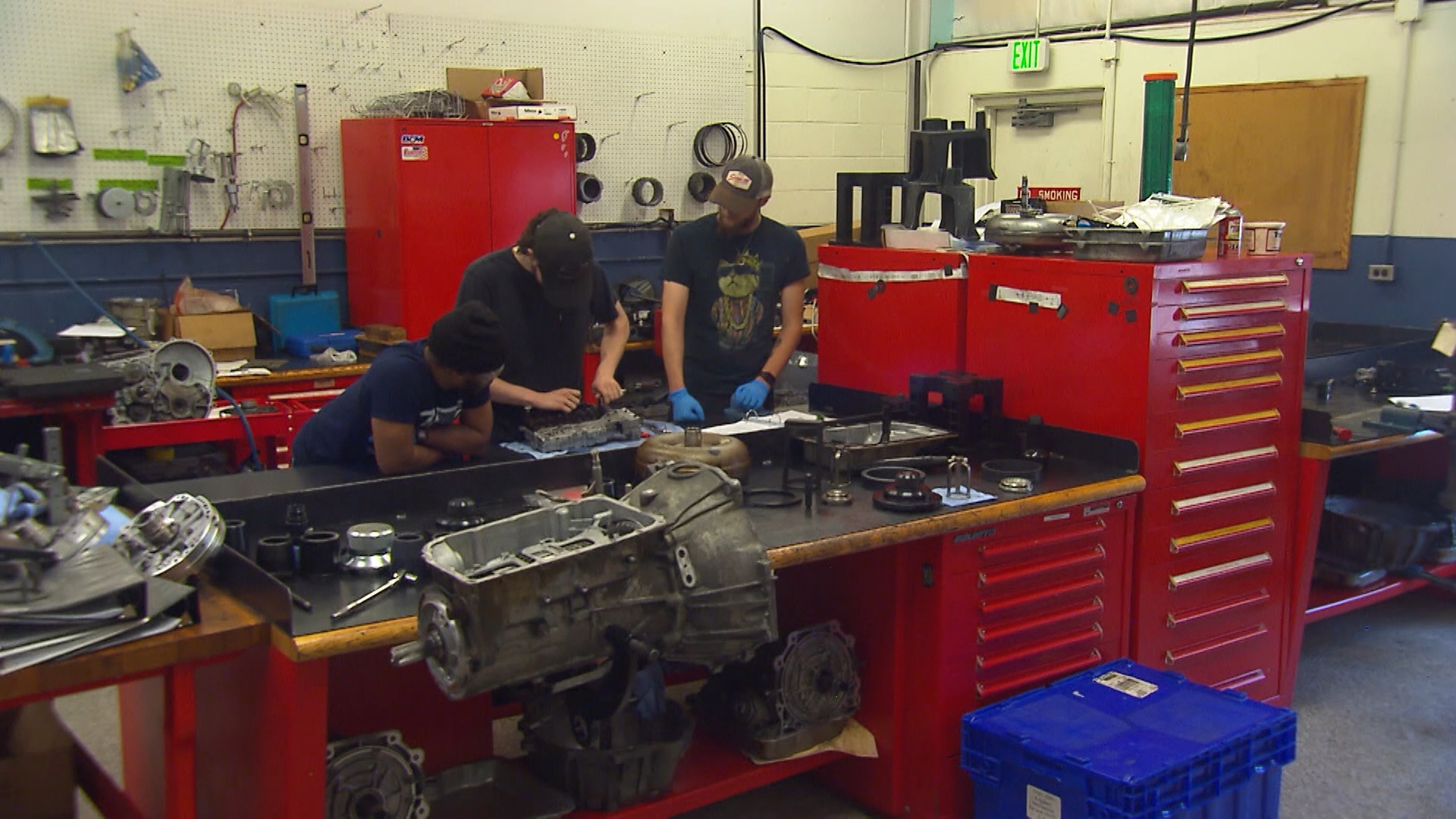
DAN MAFFETT: That’s great. So, you get a lot of vehicles shipped in that are new for them to have hands-on training on as well.
HAROLD BABB: Yeah, I’d say from all the manufacturers. They support us with vehicles coming in, they donate to the program, so our students work on it. Some of the programs, like GM, they want us working on cars that are within five model years old because when they leave here, they’re going, sometimes, right to the dealership where they’re bringing in brand new vehicles…2023’s.
DAN MAFFETT: So that keeps them to the most up-to-date training possible.
HAROLD BABB: Exactly. And when we’re done we get to donate it down to the high schools to keep the recruits coming in because, as you said, we need more technicians.
DAN MAFFETT: Yeah, there’s no lack of need of technicians, that’s for sure.
HAROLD BABB: Yeah. Like I said, we have good problems. We just don’t have enough technicians to send to our dealers.
DAN MAFFETT: Yeah. Well, thank you for having us, we appreciate you; and as always if you have any questions, comments or concerns, hit us up right here, at MotorWeek.




